Improvising Polyphonic Lines (Ep: 202)
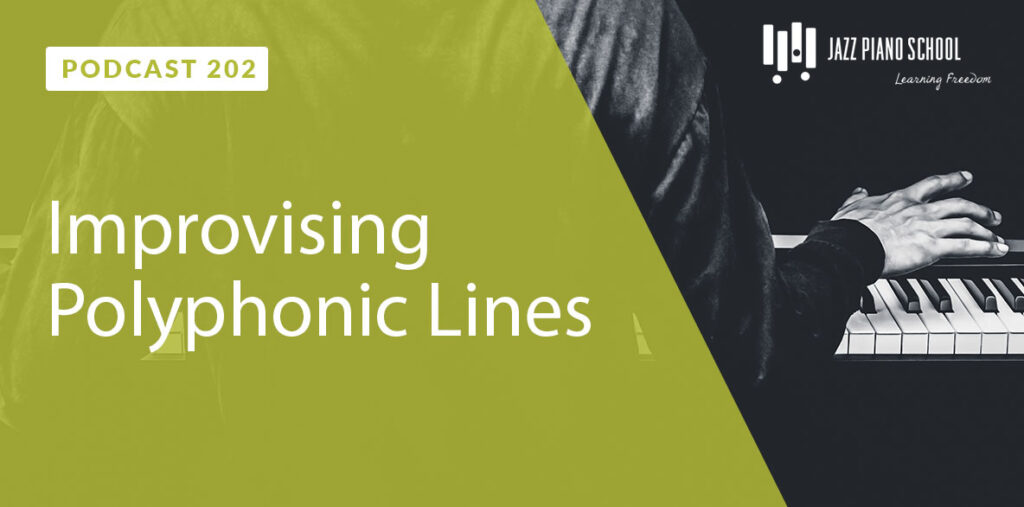
We pianists often imitate the voice or horn when improvising, but in this lesson we explore the capabilities unique to the piano. Playing lines with 1, 2, and all the way up to 6 notes at a time! Once you start exploring this area of improvisation, a whole new world of concepts will open up to you.
Bebop Secrets: How to Use Approach Notes (Ep: 201)
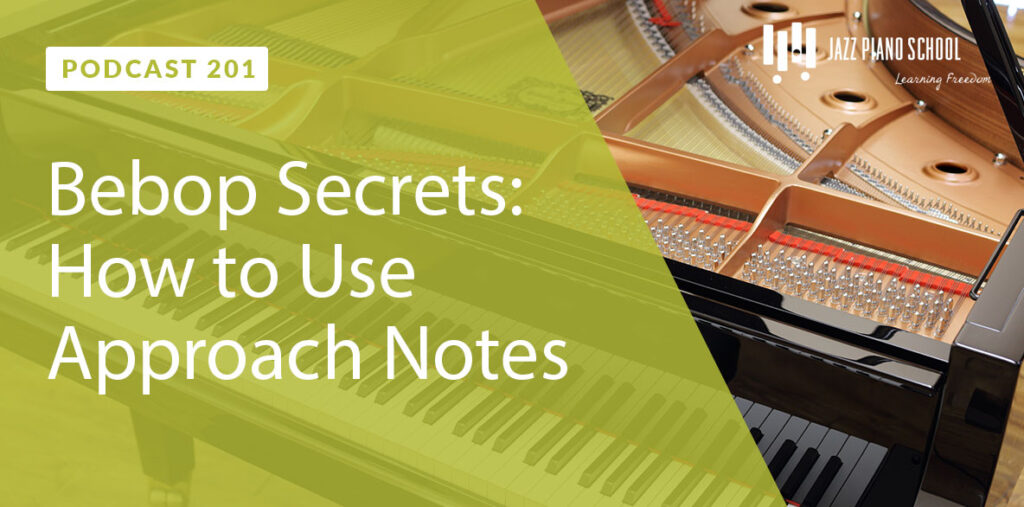
Are you wondering how to capture the real sound of Bebop in your jazz playing? Tune into this week’s podcast as we reveal how to use approach notes to sound like the best bebop pianists. This simple exercise will add a new dimension to your improvising!
JPS Ep:158 – Check out the “Joe Henderson Chord!”
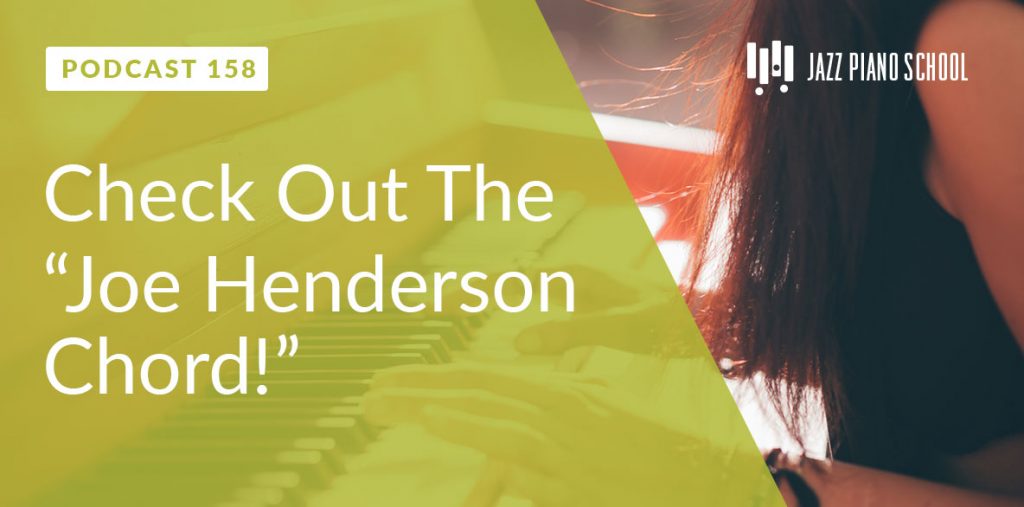
In this podcast lesson we take a closer look at the chord which characterized Joe Henderson during the most impactful time of his career. This chord appears again and again in Joe’s well known compositions from the 1960’s, such as “Inner Urge,” “Punjab,” “Gazelle,” and more! Follow along as we explore the chord within the context of the infamous jazz standard “Inner Urge” and investigate how to use it to our advantage when improvising.
Understanding Jazz Theory (Part 2): Functioning Dominants & 3 Functioning V7 Alterations
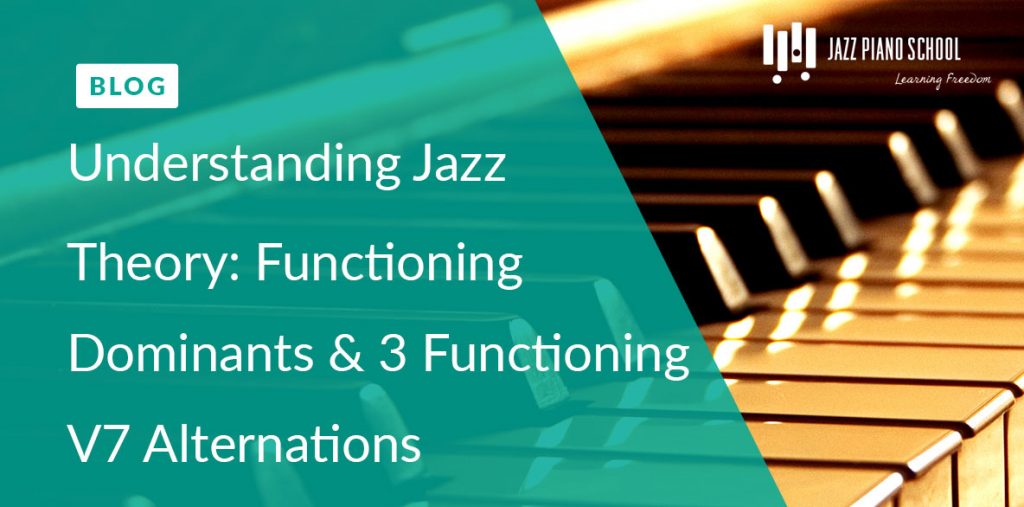
In Part 1 in this “Making Sense of Jazz Theory” series we looked at 3 foundational concepts: the 4 Chord Families, Diatonic Harmony, and the Church Modes. If you haven’t checked that out yet, Click Here to read that first. Today we are going to be looking at the importance of understanding Functioning Dominants and […]
Jazz Piano School Ep. 119 – How Theory & Structure Lead To Freedom
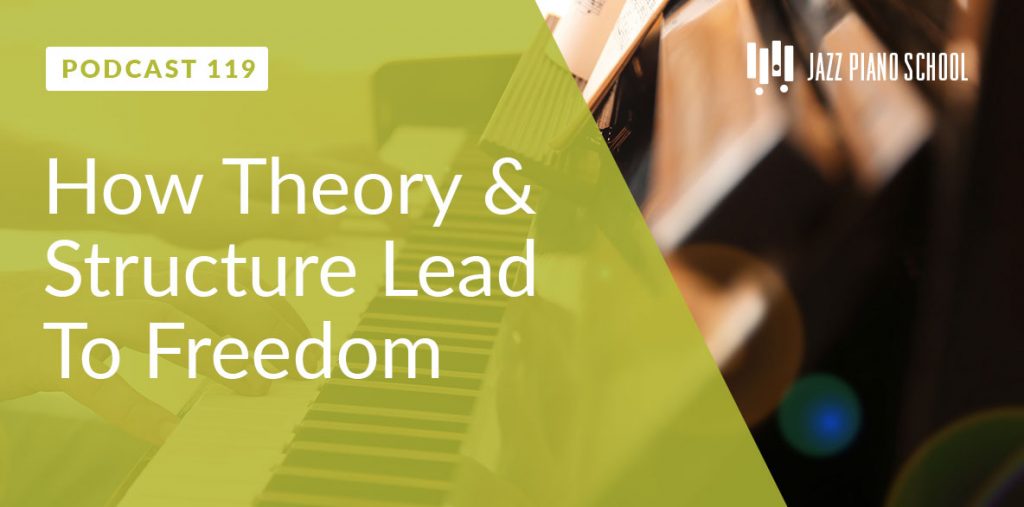
I heard an amazing saying the military uses as a motto that goes like this…”Fast is slow and slow is fast.” If I had to sum up jazz piano in a similar way I would say, “Theory & Structure is Freedom, and Freedom Is Theory & Structure.” In this episode I show you why it’s so important to learn theory concepts in a sequential manner and how it will translate into true freedom of self expression in your playing. Enjoy!
Understanding Jazz Theory (Part 1): 3 Most Important Jazz Theory Concepts For A Beginner
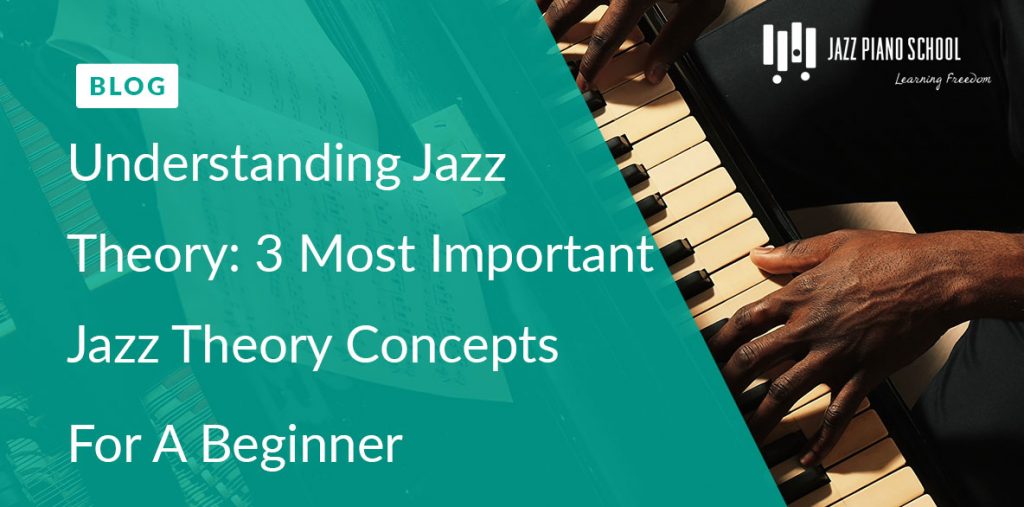
4 Chords Families While these are not the only chord families, these 4 are the main families that make up the diatonic series: Major 7th Symbols: M7, Ma7, Maj7, Δ7 Dominant 7th Symbols: 7, dom7 Minor 7th Symbols: m7, mi7, min7, -7 Minor 7 Flat 5 or Half-Diminished Symbols: m7(b5), min7(b5), ø7 Next, it is […]
Jazz Piano School Ep. 104 – How To Start Improvising With Extensions
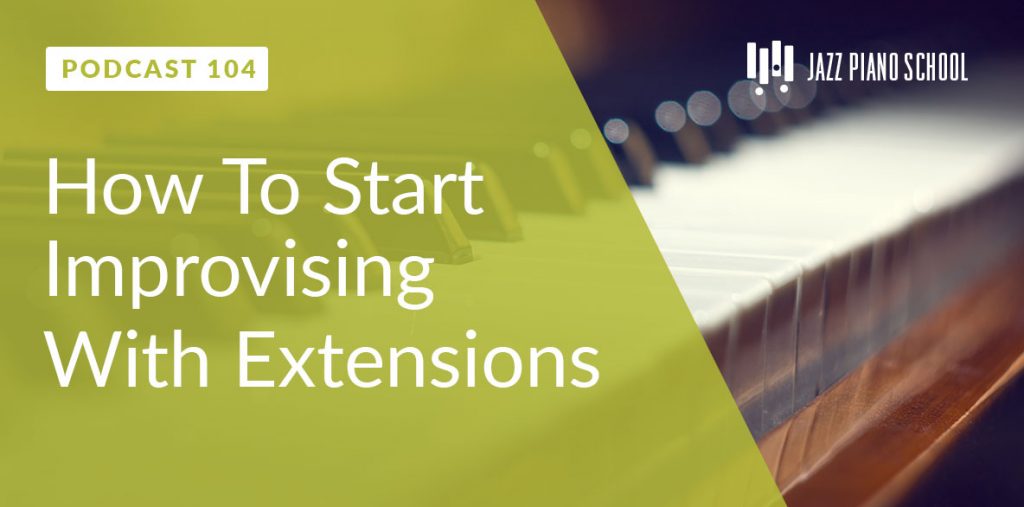
In this episode we explore how to build a relationship with extensions. Once your ear starts to learn the mood and atmosphere they produce, you can easily start to implement them into your improv to get different types of sounds you want to express.
Jazz Piano School Ep. 102 – What In The World Is Modal Interchange?
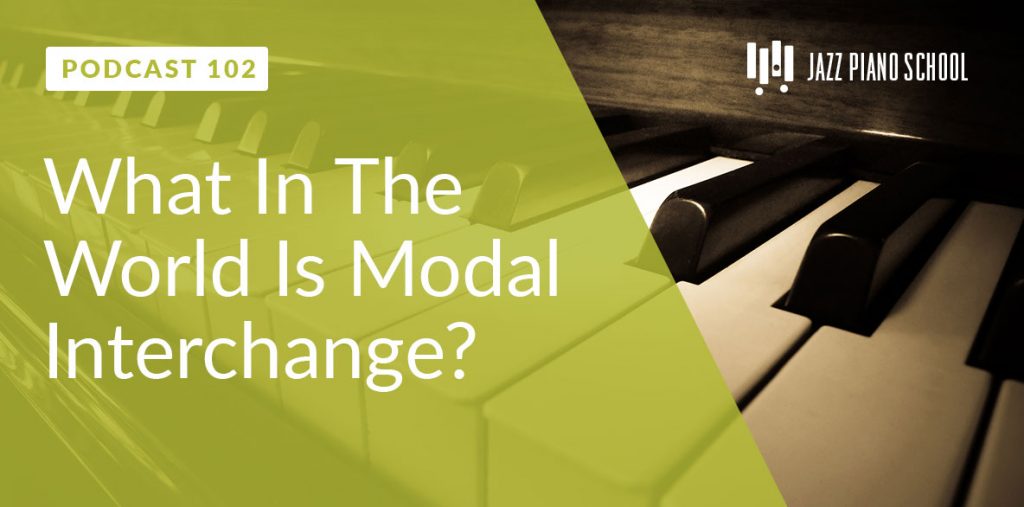
Modal Interchange starts to dive head first into the theory rabbit hole for sure. But in this episode, I’ll cover the basics of what it is, where you’ll see it and how you can start to use it in your playing!
Jazz Piano School Ep. 100 – Keith Jarrett Analysis, “Someone To Watch Over Me”
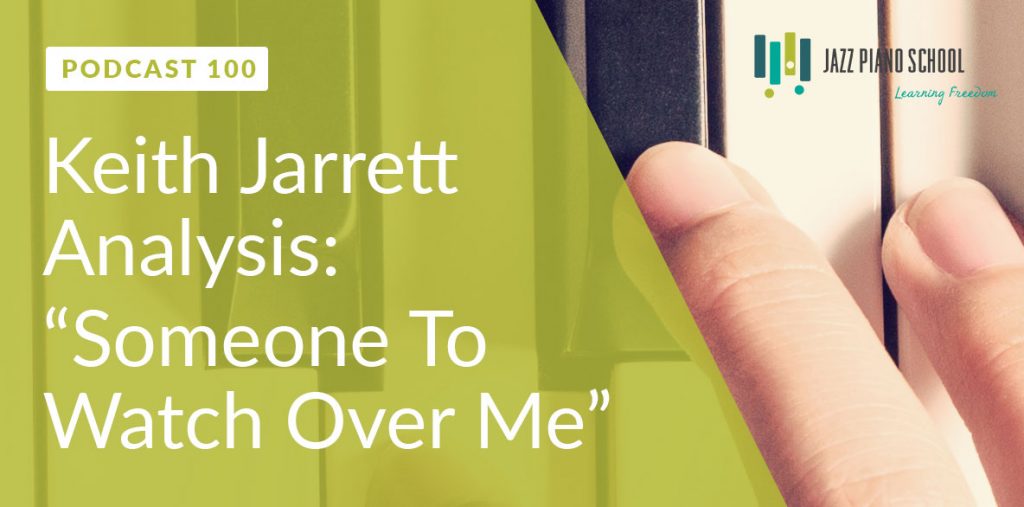
Not to take anything away from Keith on this one, but we reached PODCAST 100! Kind of crazy if you ask me? When I think about to all the hurdles, and problems we had to get through, I can’t believe we’ve come this far. In order to celebrate we ‘re giving away 2 amazing gifts. #1 A LIFETIME membership to jazz piano. Yes you read that correctly. And #2 – A free reserved membership to our new “Lab” this is coming by the end of the year. Now in order to enter all you have to do is give the podcast a 5 start rating and write a brief review. I mean it could literally say “This podcast rocks!” and you will be entered to win 1 of 2 memberships to Jazz Piano School. Here are the directions. 1. Click this link to the Jazz Piano School Podcast. Click Here For The Jazz Piano School Podcast 2. Click the small button that says “VIEW IN ITUNES” 3. Click the “RATINGS AND REVIEWS” tab. 4. Click “Write A Review” 5. Write a review and leave a 5 star rating and we will enter you in. REMEMBER: You have to write a review because that is the only way we ‘ll know your name. We will announce the winner at the start of the following week ‘s podcast. The great thing about the entry is that you ‘re helping spread the love of jazz piano education to others around the world. Back to Keith. Keith Jarrett is brilliant at the way he moves his inner voicings around. Especially in a ballad. This can clearly be seen in this week ‘s analysis of “Someone To Watch Over Me”. Please enjoy!
Jazz Piano School Ep. 99 – Seven Steps To Heaven – Herbie Hancock Solo Analysis
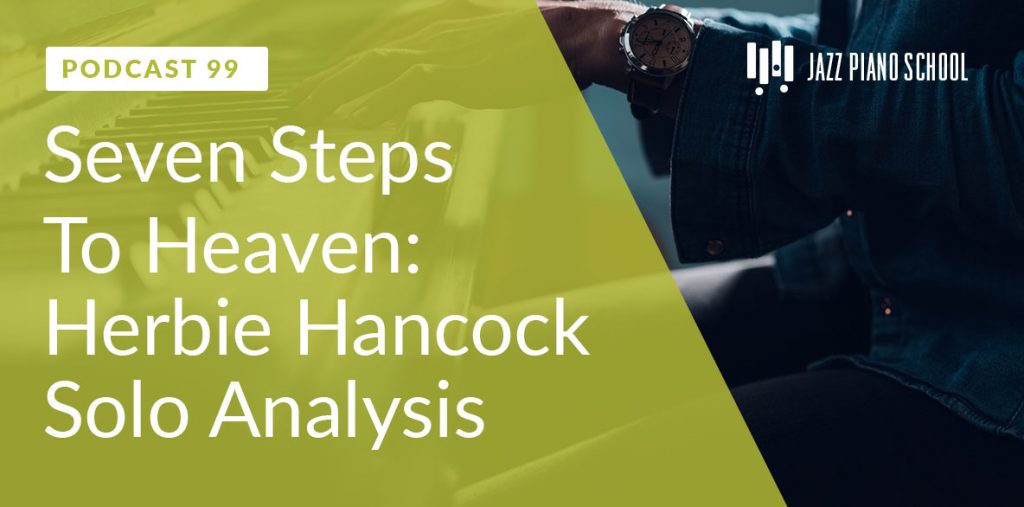
Herbie has always been a god in the jazz piano world. In this iconic track, Seven Steps To Heaven, we take a look at how Herbie is burnin’ it up all over the place. He’s got some beginner movements mixed with some advanced concepts. Anyone can learn from taking a look at this one. Enjoy!



